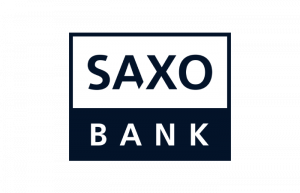Keeping Up with the Current Bitcoin Price: An Investor’s Guide
The current Bitcoin price is a crucial metric for investors, reflecting the cryptocurrency’s market dynamics. This article offers insights into factors affecting its value and strategies for investment.

In the fast-paced world of cryptocurrency, the current Bitcoin price serves as a vital indicator for investors, traders, and enthusiasts alike. As the first and most prominent digital currency, Bitcoin has seen significant fluctuations in its value, driven by various factors ranging from market sentiment to global economic trends. Understanding these influences is key to navigating the volatile cryptocurrency market and making informed investment decisions. This guide explores the primary factors affecting the current Bitcoin price and provides strategic advice for those looking to invest.
Market Supply and Demand
The foundational economic principles of supply and demand largely dictate the current Bitcoin price. Bitcoin’s capped supply of 21 million coins creates a scarcity that can drive up its value as demand increases. Factors such as increased adoption, media coverage, and investor sentiment can significantly impact demand and, consequently, the price.
Regulatory News
Regulatory developments in major markets have a profound effect on the current Bitcoin price. Positive regulatory news, such as the approval of Bitcoin ETFs or the adoption of favorable cryptocurrency laws, can boost investor confidence, leading to price increases. Conversely, regulatory crackdowns or negative statements by officials can cause uncertainty, resulting in price dips.
Technological Advancements
Technological innovations within the Bitcoin network, such as improvements in scalability, security, and transaction speed, can positively influence the current Bitcoin price. These advancements enhance the overall utility and appeal of Bitcoin as a digital currency, potentially increasing its demand and value.
Global Economic Factors
The current Bitcoin price is also sensitive to global economic factors. In times of economic instability or inflation, investors may turn to Bitcoin as a hedge against traditional financial systems, driving up its price. Similarly, a strong dollar or positive economic indicators can lead investors back to traditional investments, impacting Bitcoin’s value.
Institutional Investment
The entry of institutional investors into the Bitcoin market has been a significant driver of its price movements. Large-scale investments by institutional players not only bring substantial capital into the market but also enhance Bitcoin’s legitimacy as an investment asset. Announcements of institutional buying or integration of Bitcoin into financial products often lead to price surges.
Market Sentiment and Media Influence
The overall market sentiment and media coverage play crucial roles in shaping the current Bitcoin price. Positive news stories and endorsements by high-profile individuals can generate interest and demand, leading to price increases. Conversely, negative publicity or market sentiment can prompt selling pressure and price decreases.
Strategic Investment Approaches
Given the volatility of the current Bitcoin price, investors should consider strategies such as dollar-cost averaging to mitigate risk. This involves investing a fixed amount at regular intervals, regardless of the price, reducing the impact of volatility over time. Staying informed about market trends, regulatory developments, and technological advancements is also critical for making timely and informed investment decisions.
The current Bitcoin price is influenced by a complex interplay of market dynamics, technological developments, regulatory news, and global economic factors. For investors looking to navigate the cryptocurrency market, understanding these influences is crucial. By employing strategic investment approaches and staying abreast of market trends, investors can better manage risk and capitalize on opportunities in the ever-evolving world of Bitcoin.









